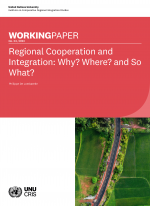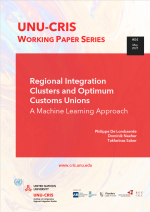Human Security in Central America
The assessment of human security (HS) challenges and prospects in Central America (CA) presents a complex and contradictory picture. The region has been quite tumultuous during the past three decades, and the legacy of war, social violence, and democratization processes in various stages of progress and disrepair have all left important imprints. Once considered as unlikely contenders for democratic institutionalization and consolidation (Barnes 1999), Guatemala, El Salvador, Honduras, Nicaragua, Costa Rica, and Panama can now be considered as democracies. Civil wars which wrecked Guatemala, El Salvador, and Nicaragua through the 1980’s and early 1990’s have all been officially terminated through the signing of national peace accords, under the umbrella of the Esquipulas regional movement, spearheaded in the late 1980’s by Costa Rica’s then president Oscar Arias. Peace-building efforts with internal and external support – notably in Guatemala, but elsewhere as well (Pearce 1998) – have initiated the process of democratic consolidation, and though these efforts have been problematic in many ways, the spectre of a return of the organized and widespread political violence of the 1980’s has somewhat receded. Since 1998, crises of political institutions have occurred in South America (Argentina: 2001, Bolivia: 2003, Ecuador: 2000, Paraguay: 1999-2000, Peru: 2000, Venezuela: 2002) and in the Caribbean (Haiti: 2001) (Rojas 2004: 10) but Central America has largely avoided direct involvement in these regional tensions (Malamud 2005).



